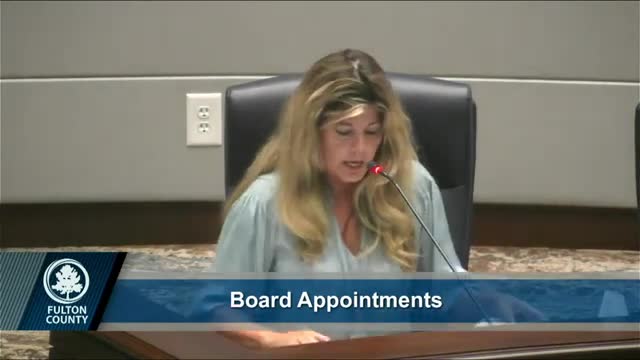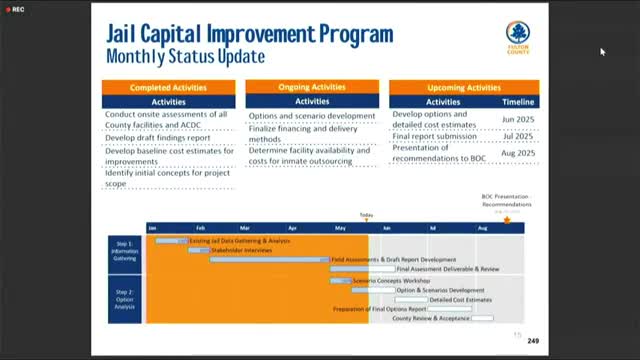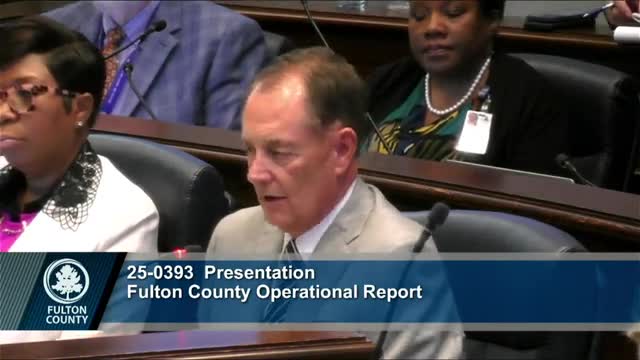Article not found
This article is no longer available. But don't worry—we've gathered other articles that discuss the same topic.

Howell Station residents protest Georgia Power easement; commissioners say county funds and engagement may help mitigate impacts

MARTA presents FY26 operating and capital priorities; says system ready for World Cup build-up

Fulton County files two Republican BRE nominees after heated public comments; two Democratic nominees confirmed

Fulton libraries warn popular Hoopla e‑service could exhaust FY25 funding; county staff will return with options

Fulton jail population edges up; county outlines jail maintenance blitz and $3.2M facility upgrades

